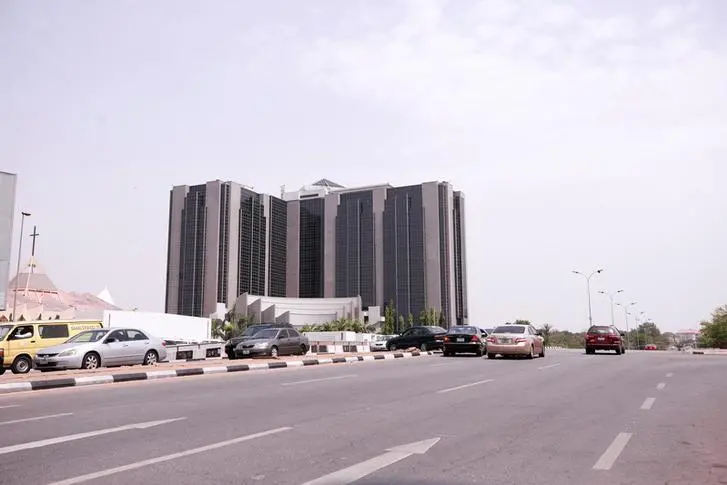PHOTO
COMMERCIAL banks in Nigeria may be liable to sanctions for trading blames with the Central Bank of Nigeria (CBN) over cash scarcity, with each party accusing the other of responsibility.
The banks are currently not dispensing cash to customers, triggering widespread frustration and scarcity concerns.
While the Deposit Money Banks (DMBs) claim the CBN has failed to supply sufficient cash, the CBN insists that the banks are hoarding funds.
The standoff has led to fears of sanctions against defaulting banks as the CBN threatens to penalise any financial institution found guilty of cash hoarding or failing to comply with its directives.
The development has worsened the cash scarcity situation, leaving millions of Nigerians struggling to access their funds.
“It is the CBN that is responsible for this cash scarcity. We are not getting enough from them. They are just causing unnecessary suffering for the masses, a banker, who prefers not to be named, said.
On the other hand, most bankers who spoke to Nigerian Tribune said beyond supplies from the CBN and the pursuit of cashless policy, the banking public are not depositing money in their bank accounts. The CBN continues to blame the current cash scarcity on commercial banks and individual customers.
“There is cash out there,” said Hakama Sidi Ali, CBN’s acting Director in Corporate Communications.
“The CBN is giving to banks except that most of this cash is in the hands of individuals. All these panic withdrawals, hoarding are ongoing.”
A top CBN source said the money is supposed to go out and come back into CBN but the cycle is being disrupted and the chain is broken.
“People are either not depositing money or there is some hoarding happening,” the source said.
Meanwhile, some analysts believe there has been no replacement for the old N200, N500 and N1,000 notes that were withdrawn from circulation and burnt off during the naira redesign policy.
The result is that there is a lower volume of physical cash or what economists describe as M1.
They also reason that inflation caused by the removal of fuel subsidy and the collapse of the foreign exchange regime compelled Nigerians, who operate a cash-based economy, to require more cash to purchase the same volume of items they used to buy.
The new reality is that more money will have to be chasing after the same volume of goods.
Meanwhile, CBN Governor, Olayemi Cardoso, during a press briefing at the end of the 297th Monetary Policy Committee (MPC) meeting in Abuja on Tuesday, September 24, emphasised that all deposit money banks must ensure there is always enough cash available for withdrawals.
The CBN governor said the apex bank has set up a monitoring system to ensure compliance and any bank not adhering to this directive will face penalties.
Cardoso reiterated that the CBN’s monitoring and spot-checking system will keep track of banks’ compliance and those failing to meet the requirement would be sanctioned.
He said: “We ourselves have devised a monitoring system, a spot-checking system, whereby we will go to the banks and just ensure that these things are done in the way and manner in which they are meant to be done.
“And if they are not, again, there will be sanctions but I believe that at the stage we are in now, everybody realises that stakeholders play their part in ensuring that cash gets to the desired places they are intended to be.”
Cardoso further disclosed that the CBN plans to release an additional N1.4 trillion into circulation over the next three months to improve cash flow within the banking system.
This move, he said, is aimed at ensuring sufficient cash availability in ATMs and across bank branches, addressing the challenges of cash insufficiency that many customers have faced.
He said: “Another N1.4 trillion is likely to be delivered in another three months to aid that whole process of cash within the system and cash velocity.
“So, from our perspective, we are doing everything possible to ensure that there is sufficient cash in the system. There is no excuse for not having sufficient cash in the system.
“Now it goes to the deployment of that cash and quite frankly, we are working very, very closely. We are engaging with all the deposit money banks to ensure that they are putting these things through their ATMs, effectively dispensing cash to those that are in need.
“And whether they are in need or not, that is the function of the deposit money banks. And at all points in time, there should be sufficient cash in their system that nobody should go there without being able to withdraw.”
The amount of currency outside the banking system in Nigeria decreased to N3.66 trillion in July 2024, marking the second decline this year.
This represents a reduction of 3.32 percent (N130 billion) from the previous month’s figure of N3.79 trillion, highlighting the CBN’s ongoing efforts aimed at tightening liquidity and encouraging deposits into the formal banking sector. The decrease is larger than the 0.62 percent (N20 billion) fall recorded between March and April when it dropped from N3.63 trillion to N3.61 trillion.
Despite the decrease in currency outside the banks, the currency in circulation saw a marginal increase from N4.05 trillion in June to N4.05 trillion in July, a growth of just 0.12 percent.
The minimal increase suggests that the economy might be stabilising in terms of cash usage, potentially due to increased digital transaction adoption or regulatory measures aimed at controlling cash flow.
Copyright © 2022 Nigerian Tribune Provided by SyndiGate Media Inc. (Syndigate.info).




















